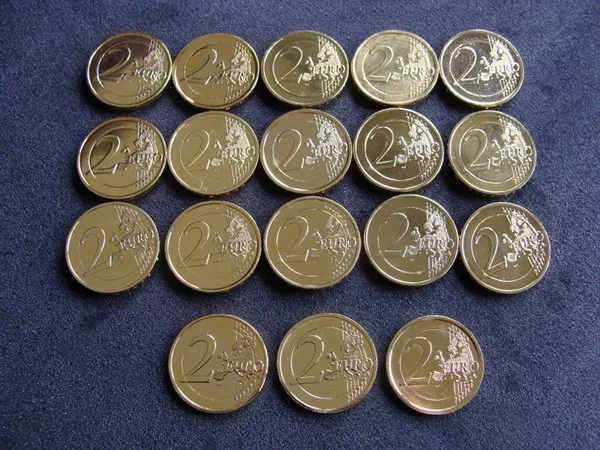Turkey’s geographical location straddling Europe and Asia, along with its robust economy, often raises questions about its relationship with the Euro. The Euro, the official currency of the Eurozone, is used by 19 of the 27 European Union (EU) member states. However, Turkey, despite its close ties with Europe, does not use the Euro as its official currency. This article delves into the reasons behind Turkey’s currency choices, its economic relationship with the Eurozone, and the implications of its decision.
Turkey’s Currency: The Turkish Lira
Turkey’s official currency is the Turkish Lira (TRY). Established in 1923 after the dissolution of the Ottoman Empire, the Turkish Lira has undergone several transformations. Currently, the Central Bank of the Republic of Turkey (CBRT) governs the issuance and regulation of the Turkish Lira.
The History of the Turkish Lira
The Turkish Lira has a complex history marked by periods of instability, high inflation, and currency devaluation. Various economic crises, such as those in 1994, 2001, and 2018, have significantly impacted the value of the Lira. However, efforts by the Turkish government and the CBRT have aimed to stabilize the currency and maintain economic growth.
The Importance of the Turkish Lira
The Turkish Lira plays a crucial role in Turkey’s economy, facilitating domestic transactions, trade, and investments. It symbolizes the nation’s sovereignty and economic independence. Despite challenges, the Turkish government remains committed to strengthening the Lira and ensuring its stability.
Turkey’s Relationship with the Euro
While Turkey is not part of the Eurozone, it maintains a significant economic relationship with the European Union and the Eurozone countries. Trade, investment, and tourism contribute to close economic ties between Turkey and the EU member states.
Trade Relations
Turkey’s geographical proximity to Europe makes it a vital trading partner for EU countries. The European Union is Turkey’s largest trading partner, with trade volumes reaching billions of euros annually. Despite not using the Euro, Turkey conducts a substantial portion of its trade with Eurozone countries, further cementing economic interdependence.
Investment
Foreign direct investment (FDI) flows between Turkey and the Eurozone have contributed to economic growth and development. European companies have invested heavily in various sectors of the Turkish economy, including manufacturing, finance, and tourism. Likewise, Turkish companies have expanded their operations into European markets, fostering bilateral investment.
Tourism
Turkey’s diverse culture, historical sites, and natural beauty attract millions of tourists annually, many of whom come from Eurozone countries. The tourism industry plays a vital role in Turkey’s economy, generating revenue and creating employment opportunities. The Euro’s widespread use in European countries simplifies transactions for tourists visiting Turkey.
Implications of Not Adopting the Euro
Despite the economic benefits of using the Euro, Turkey has chosen to maintain its own currency for various reasons.
Sovereignty and Independence
For Turkey, retaining the Turkish Lira represents sovereignty and economic independence. Adopting the Euro would entail relinquishing control over monetary policy to the European Central Bank (ECB) and adhering to Eurozone fiscal regulations. Maintaining control over its currency allows Turkey to implement monetary policies tailored to its specific economic needs and circumstances.
Economic Considerations
Turkey’s economy possesses unique characteristics and challenges that differ from those of Eurozone countries. Factors such as inflation rates, growth trajectories, and external shocks necessitate flexibility in monetary policy. The ability to adjust interest rates and implement quantitative easing measures provides Turkey with tools to address economic fluctuations effectively.
Integration Concerns
Full integration into the Eurozone would require Turkey to meet stringent criteria outlined in the Maastricht Treaty, including fiscal discipline, inflation targets, and debt levels. Achieving compliance with these criteria could pose challenges for Turkey, requiring significant structural reforms and adjustments to its economic policies.
Future Perspectives and Challenges
Turkey’s decision to maintain its currency while fostering economic ties with the Eurozone presents both opportunities and challenges.
Strengthening Economic Cooperation
Turkey and the Eurozone countries can continue to strengthen economic cooperation through trade agreements, investment partnerships, and joint ventures. Enhanced collaboration in sectors such as renewable energy, technology, and infrastructure could benefit both parties and contribute to regional stability and prosperity.
Addressing Economic Vulnerabilities
Turkey faces various economic vulnerabilities, including inflationary pressures, currency depreciation, and geopolitical uncertainties. Implementing sound macroeconomic policies, structural reforms, and strengthening institutional frameworks are crucial for addressing these challenges and promoting sustainable economic growth.
Navigating Geopolitical Dynamics
Turkey’s geopolitical position between Europe and Asia influences its foreign policy decisions and economic strategies. Balancing relations with the European Union, NATO allies, and regional powers requires diplomatic finesse and strategic foresight. Maintaining stability and fostering dialogue are essential for navigating geopolitical dynamics effectively.
See Also The Euro vs Dollar: Which Currency Prevails?
Conclusion
Turkey’s relationship with the Euro reflects its commitment to sovereignty, economic independence, and strategic autonomy. While Turkey does not use the Euro as its official currency, it maintains robust economic ties with the Eurozone countries. The decision to retain the Turkish Lira entails both opportunities and challenges, requiring prudent economic management and strategic cooperation. As Turkey continues to navigate its economic path, cooperation with the Eurozone and other international partners remains essential for fostering growth, stability, and prosperity.
FAQs
1. Why doesn’t Turkey use the Euro?
Turkey maintains its currency, the Turkish Lira, to preserve sovereignty and economic independence. Adopting the Euro would entail relinquishing control over monetary policy to the European Central Bank, which may not align with Turkey’s specific economic needs and circumstances.
2. How does Turkey benefit from its economic relationship with the Eurozone?
Turkey benefits from its economic relationship with the Eurozone through trade, investment, and tourism. Close ties with Eurozone countries facilitate trade agreements, foreign direct investment, and tourism revenue, contributing to economic growth and development.
3. What are the challenges Turkey faces in maintaining its currency?
Turkey faces various challenges in maintaining the Turkish Lira, including inflationary pressures, currency depreciation, and geopolitical uncertainties. Implementing sound macroeconomic policies, structural reforms, and strengthening institutional frameworks are crucial for addressing these challenges and promoting sustainable economic growth.


